Femia > Health Library > Pregnancy > Pregnancy health > Weird pregnancy cravings: The strangest food combos and how to handle them
Weird pregnancy cravings: The strangest food combos and how to handle them
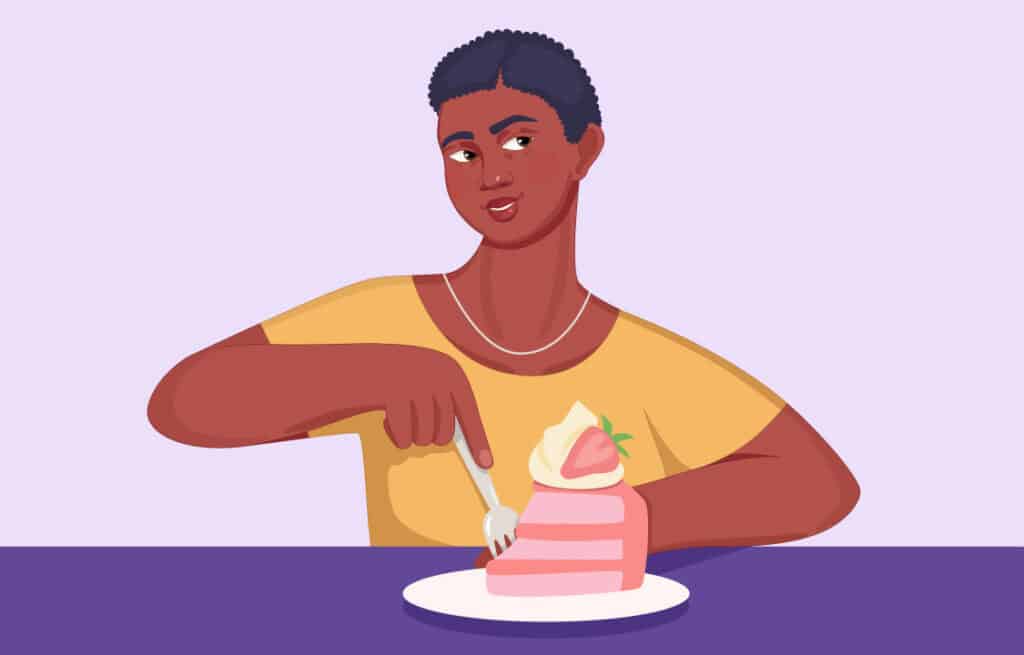
- Updated Feb 25, 2025
- Published
CRAFTED BY HUMAN
Crafted by human At Femia, we provide accurate and up-to-date information at every stage of your journey, from trying to conceive, pregnancy and postnatal support. All content is created by a real person based on in-depth research and own professional experience. Femia ensures that you will receive expert advice, strict accuracy and a personalized approach from our authors/medical experts. Learn more about our editorial policy.
FACT CHECKED
Fact checked At Femia Health, we maintain the highest standards of editorial excellence in delivering content focused on helping you conceive, guiding you through pregnancy, and supporting you postpartum. Explore our content review principles to learn how we ensure the accuracy and quality of our health and lifestyle tips for every stage of your journey.
Pregnancy cravings are a normal thing. Some last for days, some for months. Cravings are often caused by hormonal changes, but sometimes they may also indicate nutritional deficiencies. While most moderate cravings are safe, pica—a disorder causing compulsive eating of non-food items—requires consulting a healthcare provider.
During pregnancy, you may find yourself craving foods you never liked before or even unusual food combos. Some cravings might even seem strange, like dirt or chalk—common but best avoided!
Most cravings are safe and may only cause minor digestion issues, but they can feel intense due to hormonal changes. To help you navigate cravings and maintain balanced nutrition, we’ve created a fact sheet to answer your questions and guide you in managing diet changes. Using a pregnancy weight gain calculator can also help you monitor healthy weight gain while indulging safely.
What are pregnancy cravings?
Pregnancy cravings is a term used to describe intense desires to eat specific foods during pregnancy. And, these cravings often come with an urgency that can be hard to resist.
50–90% of women experience cravings during pregnancy. Even though there is no verified reason for cravings to appear, they are thought to be caused by a combination of hormonal changes and the body’s increased nutritional needs during pregnancy.
Cravings tend to begin in the first trimester and peak in the second. They can also happen at any time of pregnancy. The good news is that cravings don’t usually last the entire pregnancy; they typically last for a few days, and then the cravings change and fully disappear after delivery.
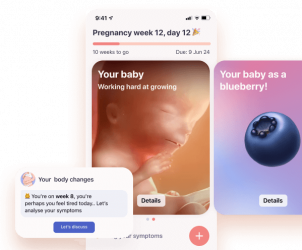
@femia.fertility When pregnancy hunger hits, you wish your kitchen had a conveyor belt of snacks ready to go! #pregnancy #2ndtrimesterpregnancy #secondtrimestersymptoms #pregnancyhunger #foodcravings #babycoming #momtobe #baby2024 #baby2025 ♬ original sound - Femia fertility tracker
What causes pregnancy cravings?
As a woman, you may have already experienced the feeling of cravings during the couple of days before your menstrual cycle begins. The hormones are at their highest levels during this time, and they tend to cause cravings.
1. Hormonal factors
The same happens to women during pregnancy: hormones are changing and can affect the receptors of the tongue, causing women to desire something specific or eat a certain food more often. These hormonal changes may also cause some aversions to foods you normally love to eat.
During pregnancy, women’s bodies produce more estrogen and progesterone. While these hormonal changes are essential for a healthy baby’s development, they may also cause food cravings. Hormones like human chorionic gonadotropin (hCG) and progesterone play a crucial role in altering smell and taste, making some foods more (or less) appealing.
In addition, when a we experience stress, the body naturally releases the stress hormone called cortisol into your body. Once released, this hormone prepares the body for “fight or flight” by flooding the organism with glucose (blood sugar), supplying immediate energy to the large muscle groups. This high cortisol level increases appetite and causes cravings, most often for sugary and fatty foods.
2. Nutritional needs
The same happens to women during pregnancy: hormones.
While cravings tend to be a common and normal practice during pregnancy, some of them may also have health-related causes.
For example, craving fruit, milk, chocolate, or other sweets may mean a woman’s body has specific nutritional needs:
- Craving fruits may show low vitamin C levels;
- Craving dairy may indicate a deficiency in calcium;
- Craving high-calorie foods may be related to increasing caloric need for a healthy pregnancy;
- Craving sour food and salty snacks may be your body’s way to retain fluids and replace sodium loss, which usually happens during the first trimester.
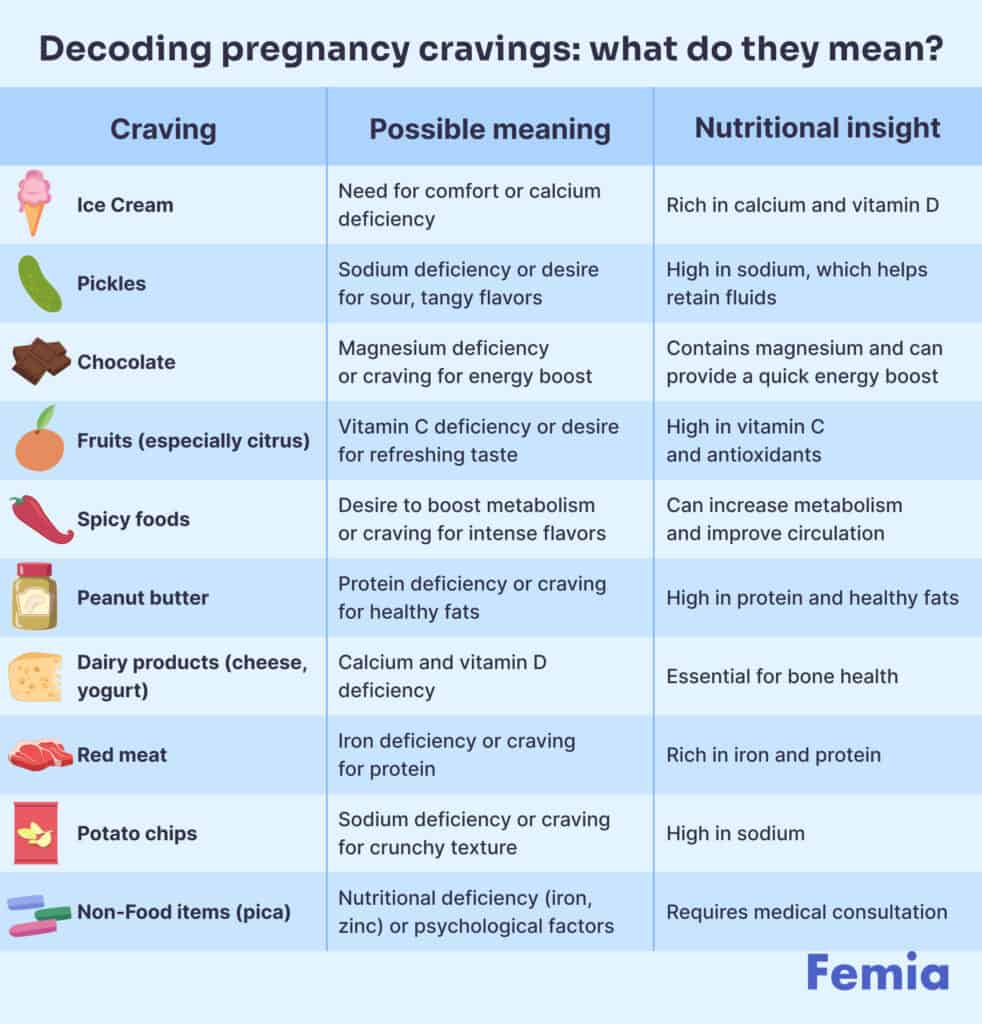
3. Psychological reason
In addition to hormonal and nutritional changes, crazy pregnancy cravings can also be caused by psychological factors or influenced by the environment. For example, when someone tells you they craved hamburgers and chips during their pregnancy, this may psychologically trigger your mind to also want these foods.
Irrespective of what cravings you have, it is always recommended to consult your OB-GYN. Your healthcare provider will need to ensure you are taking proper nutritional supplements.

25 weirdest pregnancy cravings
Pregnancy cravings can lead to some unexpected and unusual combinations. Here are some of the weird pregnancy craving examples some women have experienced:
- Pickles dipped in peanut butter;
- Ice cream with hot sauce;
- Chocolate milk & chicken Super Noodles with cheese;
- Sardines with jam;
- Peanut butter and pickled onions;
- Tuna and banana;
- Cheese and marmalade sandwiches;
- Olives and strawberries;
- Frosting straight from the can;
- Salted watermelon with lemon juice;
- Steak with strawberry jam;
- Garlic ice cream;
- Anchovy-stuffed olives;
- Popcorn with mustard;
- Eggs with syrup;
- Cottage cheese and potato chips;
- Grapes with cheese dip;
- Cereal with orange juice instead of milk;
- Hot dogs with marshmallows;
- Avocado with chocolate syrup;
- Pizza with M&M’s;
- Fried chicken with maple syrup;
- French fries with honey;
- Pickled eggs and milkshakes;
- Lemon slices with mustard.
10 most common pregnancy cravings
While some cravings are bizarre, others are quite common:
- Chips;
- Pickles;
- Tuna;
- Fruit, especially oranges;
- Dairy products like cheese and yogurt;
- Spicy foods;
- Sweets like candy and pastries;
- Fast food;
- Ice cream;
- Peanut butter.
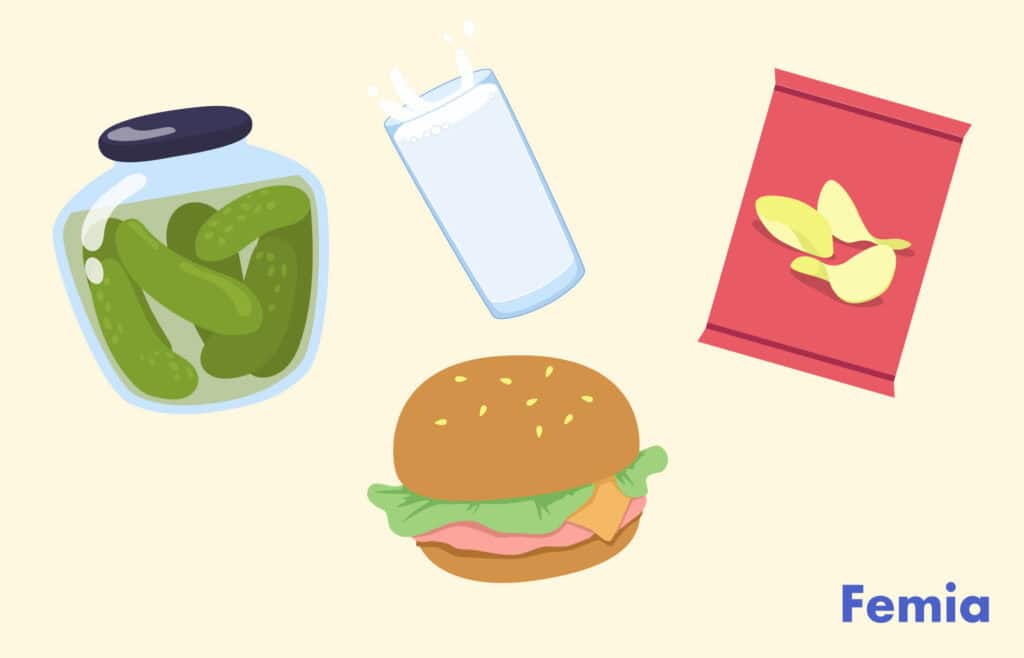
Bizarre non-food cravings
The biggest risk when it comes to pregnancy cravings is non-food items. In fact, these cravings are related to a medical condition called pica. Here is a weird pregnancy cravings list that will require a doctor’s consultation:
- Toothpaste;
- Soap;
- Dirt or clay;
- Chalk;
- Laundry starch;
- Rubber;
- Paper;
- Paint chips.
What does pica mean?
The term got its name from pica-pica—the Latin word for magpie, a bird that eats almost anything. Pica, as an eating disorder, may appear in childhood and during pregnancy as well.
Usually, people diagnosed with pica consume non-food items for at least one month.
Although doctors do not know its cause yet, some believe that a combination of factors may lead a pregnant person to have pica.
One of these reasons is a lack of nutrients needed to support both their own and their baby’s needs. These often include deficiencies in certain vitamins and minerals, like iron, zinc, and calcium. High-stress levels may also cause pregnant women to experience pica.
Pica, if it appears, usually occurs during the first trimester, since pregnancy-related nausea and vomiting can cause nutritional deficiencies.
It is crucial to consult a healthcare provider if you experience pica so you can identify what your body is lacking and learn to manage it.
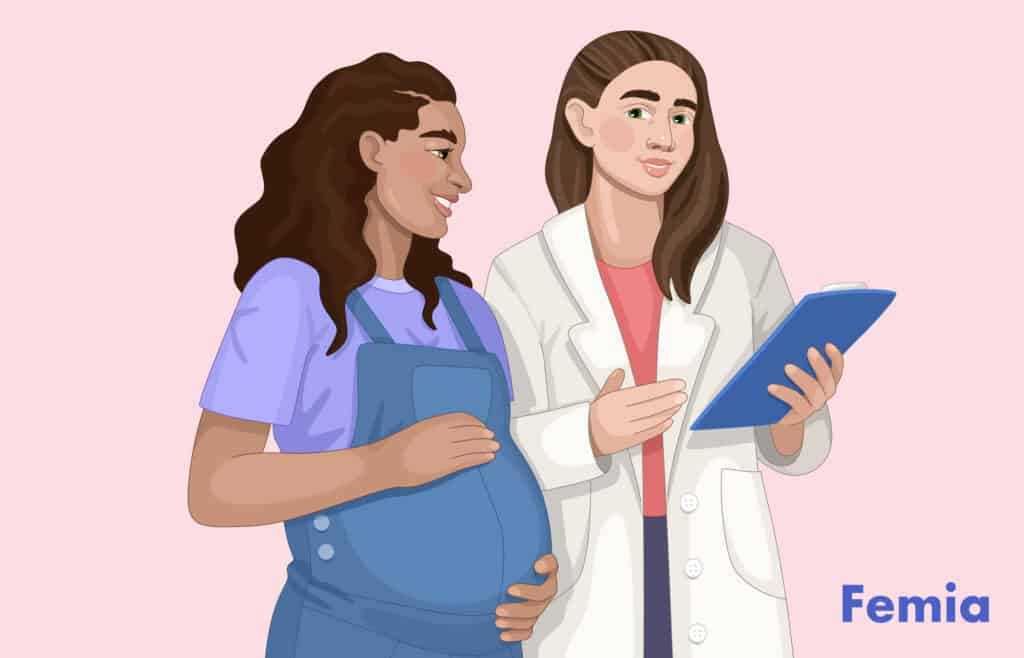
Is there a way to manage weird pregnancy cravings?
Unfortunately, it is uncommon for pregnant women to crave only healthy food, and it’s not so great to choose the weirdest pregnancy cravings like non-food items, either. While cravings are totally normal and generally safe, at some point, most women want to know how to manage and control them to maintain a healthier diet. So, here’s what you can do:
Maintain a balanced diet. First of all, you will need to ensure you get all the nutrients and have enough to eat each day. It is best to consult a healthcare provider to identify what nutrients your body needs. However, there are simple steps you can start on your own.
For example, begin your day with a breakfast rich in protein and healthy fats to keep you satisfied for longer. It’s important to maintain a healthy diet, but it’s okay to have sweets or something fatty every now and then. Keeping a balance can help make your cravings less intense and more manageable.
Choose healthy alternatives. When cravings are super intense and you literally can’t stop thinking about them, try to manage them by choosing healthier options, like fruit instead of candy. Aim to gradually increase the number of times you choose healthy options over time.
Stay hydrated. Drinking enough water generally helps to control increased appetite. When you crave something, drink a full glass of water and wait for 10 minutes to see if the craving goes away.
Manage stress levels. There are several ways you can improve your stress management. First of all, try to maintain a healthy sleep schedule, getting at least eight hours of quality sleep each night. Meditation is also a good way to help reduce stress levels. Moderate physical activity (if allowed by a doctor), like yoga and walking, at least 2–3 times a week, is also really helpful in managing stress during pregnancy.
Consult your healthcare provider. If nothing mentioned above helps or you crave non-food items, consulting a healthcare provider is essential.
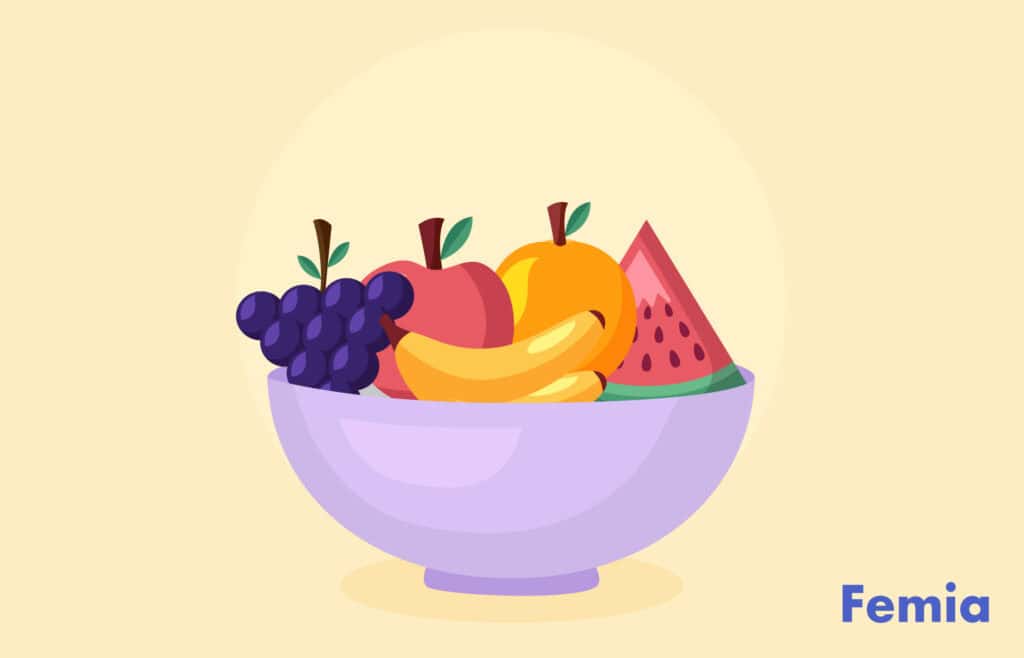
Questions from the Femia community
Can pregnancy cravings indicate a nutritional deficiency?
The short answer is that yes, sometimes they can. While cravings are usually linked to changing hormonal levels, sometimes they can indicate some sort of nutritional deficiencies. It is best to consult a doctor and run some tests, so you can know for sure if your body lacks any nutrients that may be causing your cravings.
Is it safe to indulge in all pregnancy cravings?
Most food cravings are considered safe when consumed moderately. However, non-food cravings, known as pica, might be dangerous for both mother and fetus. That's why consulting a healthcare provider is essential.
When do pregnancy cravings typically start?
Cravings can appear at any time during pregnancy. However, in most cases, they start during the first trimester and often peak during the second.
Do pregnancy cravings vary by trimester?
Yes, cravings can change during each trimester, often becoming more intense in the first and second trimesters and usually disappearing during the third.
The bottom line
Pregnancy cravings can be a fascinating and sometimes bewildering aspect of the journey to motherhood. Understanding the causes and managing these cravings healthily is key to ensuring both mother and baby’s wellbeing. Always consult with a healthcare provider if you have concerns, especially about non-food cravings.
References
- Orloff, Natalia C., and Julia M. Hormes. “Pickles and Ice Cream! Food Cravings in Pregnancy: Hypotheses, Preliminary Evidence, and Directions for Future Research.” Frontiers in Psychology, vol. 5, 23 Sept. 2014, https://doi.org/10.3389/fpsyg.2014.01076.
- Jee, Sohan B, and Anupama Sawal. “Physiological Changes in Pregnant Women due to Hormonal Changes.” Curēus, 5 Mar. 2024, https://doi.org/10.7759/cureus.55544.
- Alberti-Fidanza, A., et al. “Gustatory and Food Habit Changes during the Menstrual Cycle.” International Journal for Vitamin and Nutrition Research. Internationale Zeitschrift Fur Vitamin- Und Ernahrungsforschung. Journal International de Vitaminologie et de Nutrition, vol. 68, no. 2, 1998, pp. 149–153, pubmed.ncbi.nlm.nih.gov/9565832/#:~:text=The%20four%20basic%20tastes%20were.
- Ranabir, Salam, and K Reetu. “Stress and Hormones.” Indian Journal of Endocrinology and Metabolism, vol. 15, no. 1, 2011, pp. 18–22, www.ncbi.nlm.nih.gov/pmc/articles/PMC3079864/, https://doi.org/10.4103/2230-8210.77573.
- Meule, Adrian. “The Psychology of Food Cravings: The Role of Food Deprivation.” Current Nutrition Reports, vol. 9, no. 3, 23 June 2020, pp. 251–257, epub.ub.uni-muenchen.de/73121/1/73121.pdf, https://doi.org/10.1007/s13668-020-00326-0.
- Al Nasser, Yasser, and Ali J. Alsaad. “Pica.” PubMed, StatPearls Publishing, 2020, www.ncbi.nlm.nih.gov/books/NBK532242/.
- Upadhyaya, Suneet Kumar, and Archana Sharma. “Onset of Obsessive Compulsive Disorder in Pregnancy with Pica as the Sole Manifestation.” Indian Journal of Psychological Medicine, vol. 34, no. 3, July 2012, pp. 276–278, https://doi.org/10.4103/0253-7176.106030. Accessed 28 Jan. 2022.
- Mayo Clinic. “Pregnancy Diet: Focus on These Essential Nutrients.” Mayo Clinic, 18 Feb. 2022, www.mayoclinic.org/healthy-lifestyle/pregnancy-week-by-week/in-depth/pregnancy-nutrition/art-20045082.
- McKay, Naomi J., et al. “Increasing Water Intake Influences Hunger and Food Preference, but Does Not Reliably Suppress Energy Intake in Adults.” Physiology & Behavior, vol. 194, Oct. 2018, pp. 15–22, https://doi.org/10.1016/j.physbeh.2018.04.024.
- Kalmbach, David A., et al. “The Impact of Stress on Sleep: Pathogenic Sleep Reactivity as a Vulnerability to Insomnia and Circadian Disorders.” Journal of Sleep Research, vol. 27, no. 6, 2018, p. e12710, www.ncbi.nlm.nih.gov/pmc/articles/PMC7045300/, https://doi.org/10.1111/jsr.12710.
- Mayo Clinic Staff. “A Beginner’s Guide to Meditation.” Mayo Clinic, 14 Dec. 2023, www.mayoclinic.org/tests-procedures/meditation/in-depth/meditation/art-20045858#:~:text=Meditation%20can%20help%20you%20relax.
- Harvard Health Publishing. “Exercising to Relax.” Harvard Health, 7 July 2020, www.health.harvard.edu/staying-healthy/exercising-to-relax#:~:text=The%20mental%20benefits%20of%20aerobic.
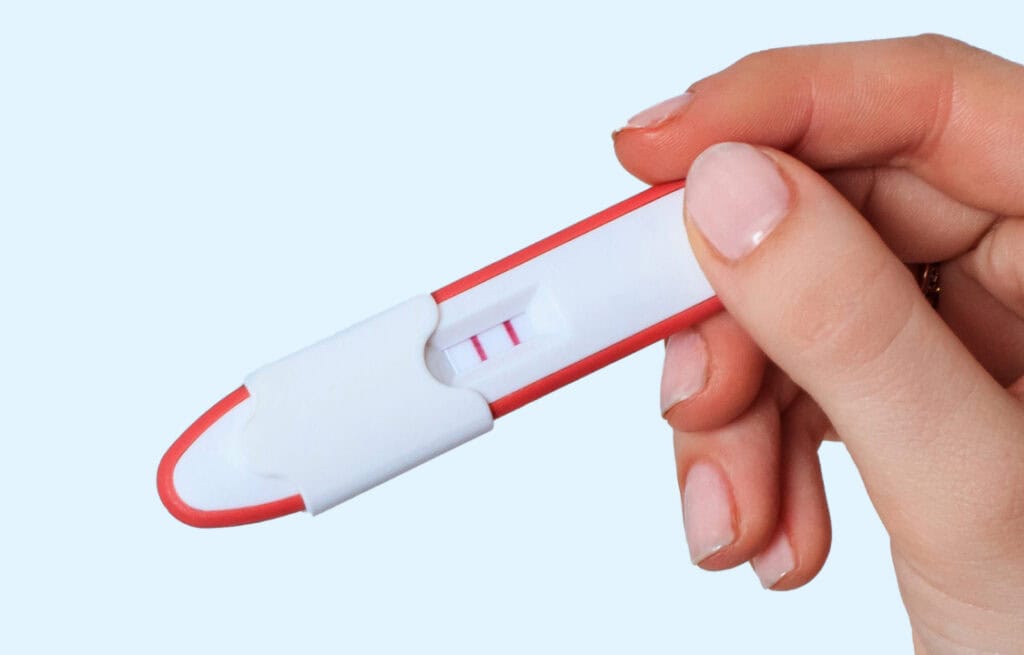
If I’m still having periods at 55, can I get pregnant? A perimenopause pregnancy is still possible, but much more complex than earlier in life.
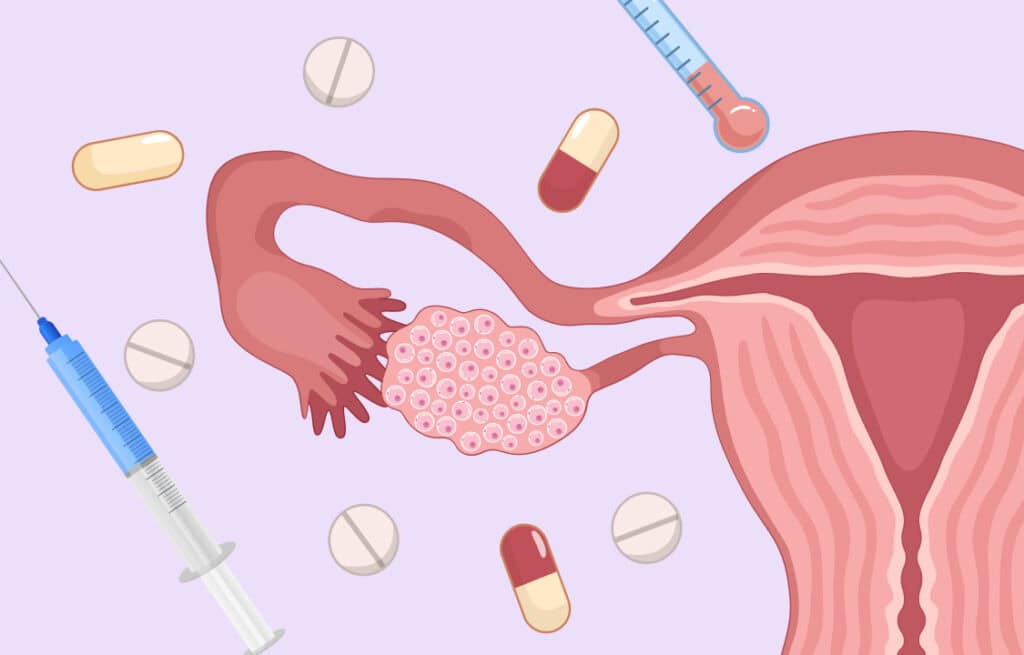
Let’s learn what OHSS means, its mild and severe symptoms, medical and self-care treatment options.
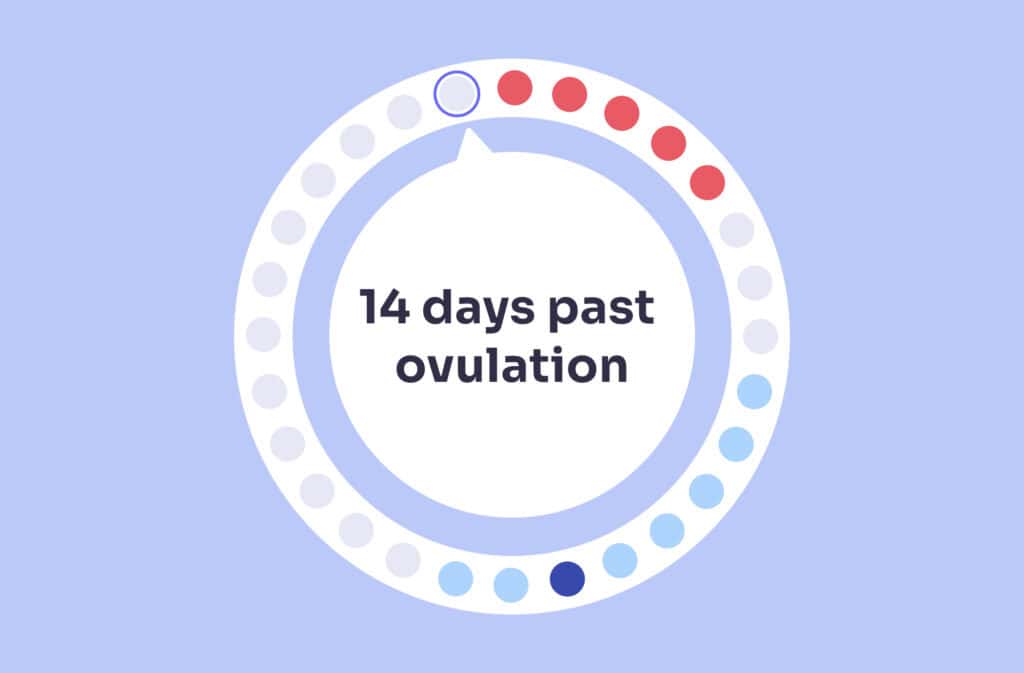
Learn about common symptoms at 14 days past ovulation (14 DPO), the day your period may be due, and confirm pregnancy with a reliable test. Expert advice from Femia.

